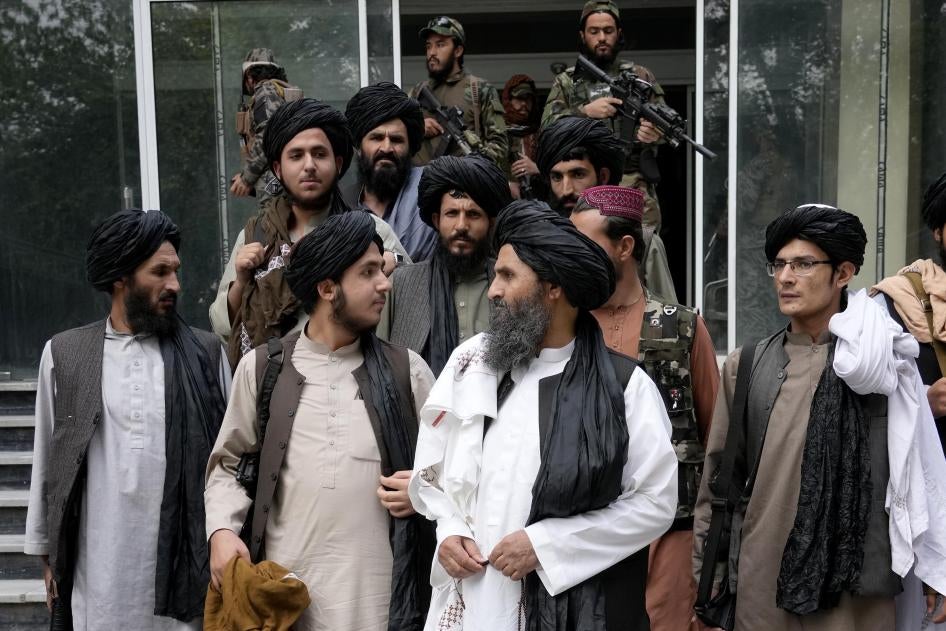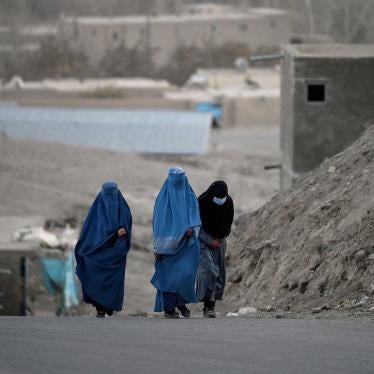Since the Taliban’s takeover of Afghanistan in August, a grave human rights crisis has been unfolding, especially for women and girls. Many governments have spoken out against the abuses; the Taliban’s March 23 decision to continue their ban on girls’ secondary schooling may be the first time a rights violation prompted near simultaneous condemnation from the European Union, the Organisation of Islamic Cooperation (OIC), and 16 female foreign ministers.
But it’s not enough. As one senior diplomat recently told me, these actions don’t “make the Taliban hurt.” It’s time for governments to turn consensus that the Taliban’s actions are unlawful into coordinated actions that show the Taliban that the world is ready to defend the rights of Afghans, particularly women and girls, in meaningful ways.
One step would be to reconceptualize the United Nations Security Council travel ban on some Taliban leaders first imposed in 1999 as part of a UN response to “violent and terrorist activities” in Afghanistan. As of May 2022, 41 members of the current Taliban administration were affected. The ban was partially suspended three years ago to permit 14 Taliban members to participate in peace talks.
The Security Council will be reviewing these exemptions in June and has an opportunity to refocus the ban on specific Taliban leaders who have been implicated in serious rights violations. Special attention should be paid to individuals such as Abdul-Haq Wassiq, head of the intelligence agency, whose forces have carried out extrajudicial executions and detained and beaten journalists; Shaykh Muhammad Khalid Hanafi, who as head of the Ministry for the Promotion of Virtue and the Prevention of Vice, has imposed many of the most egregious restrictions on women and girls; and Haibatullah Akhundzada, the Taliban’s highest religious leader, who reportedly played a decisive role in extending the ban on girls’ secondary education.
Other concrete steps could include an official visit to Afghanistan by the UN secretary-general. This could help redirect world attention to the situation, increase pressure on the Taliban to respect human rights, and prompt global solutions to end the dire humanitarian crisis. An independent review of the UN mission in Afghanistan and its human rights monitoring could ensure it is equipped to perform its mandate, including to “support and promote gender equality, women’s and girls’ empowerment and the full protection of their human rights.”
Afghan women and girls are watching their rights vanish before their eyes. They need more from the world than concern. They need action.










